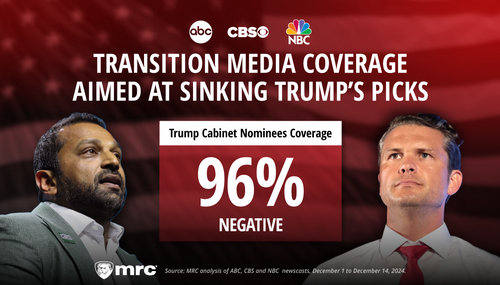Give that lady a Peabody!
The Peabody folks claim they give their awards for "outstanding" journalism and "excellence." So just how clueless do you have to be to qualify? Take Katty Kay, the BBC's chief US correspondent, in New York today to pick up her prize. On Morning Joe, Kay got off a double-barreled dose of classic MSM-think:
1. She defended Elena Kagan's opposition to military recruiting on campus on the theory that the nominee is in the mainstream . . . of college deans.
2. Chatting with the man who made Third World micro-loans famous and who preaches business without profits, Kay fretted that the crash "has not been long enough" to turn people off capitalism.
JOE SCARBOROUGH: I think it's hard to say she Kagan] is anti-military. I've said on this said I don't understand her position on recruitment on campus, I think it was a terrible mistake, and I think politically --
KATTY KAY: She was pretty much in lock-step with a lot of deans on of other colleges. So it's not as if she's an outlier.
SCARBOROUGH: But it wasn't like at Colorado State. It's lock-step with most of the deans at Harvard, and who are wildly out of touch with where most of America is.
Speaking of prizes, Nobel winner Mohammed Yunus checked in later, making the case for a form of business in which investors . . . don't make any money. Kay naturally acclaimed the concept, concerned only that the recession wasn't long enough to turn people off to capitalism.
MUHAMMAD YUNUS: In conventional businesses, business to make money, profit maximization is the mission. I'm talking about a business where you don't make money at all. That's not the intention. The intention is to solve a problem in a business way. He recovers his cost, investor gets his money back, but no dividend after that. It's all cause driven.
. . .
KAY: I was wondering: we hear a lot after the financial crash about people taking a new look at business and looking at best practices and how can we avoid that kind of crash again, and a new form of capitalism: exactly what you write about in your book. But I wonder about how real that shift is and as we start to see the employment numbers grow here and as we start to see the stock market do better, whether actually corporations won't just go back to their old ways and think: we're going to be focused on the bottom line. And whether almost the crash has not been long enough for corporations to have a real adjustment here.




